#Trade
Automakers Understandably Freaking Out Over 'No Deal' Brexit
With Britain’s parliament rejecting Prime Minister Theresa May’s latest Brexit deal, European automakers stand to face some strong headwinds in the near future. As of now, no clear path lies ahead. Many believe the European Union will continue playing hardball, punishing Britain for leaving. But, even if it doesn’t, loads of regulatory and trade issues must be resolved in short order to avoid problems.
There’s also no shortage of hyperbole surrounding the issue. Just this morning I heard cable news call it “the largest crisis in Britain’s history,” as if World War II never happened. A channel away, another outlet proclaimed how splendid it would be for trade between the United Kingdom and United States.
Regardless of which side of the fence you fall, there’s more at stake here than Theresa May’s job. Automakers, who like consistency above all else, worry a no deal plan for “British independence” could be tantamount to flipping the industry table. They don’t like being caught up in the uncertainty surrounding Brexit, and there appears to be an endless list of issues to contend with.
Europe Will Punch Back Against Any U.S. Car Tariff: EU Trade Commissioner
It’s been a trade-heavy week. Earlier, the White House decided to postpone any major tariff decisions following a discussion with the Commerce Department over a draft report on the impact of auto imports, giving trade representatives from the United States and European Union room to talk.
Unfortunately, things don’t appear to have gone swimmingly. European Trade Commissioner Cecilia Malmström left her Wednesday meeting with U.S. Trade Representative Robert Lighthizer promising that the EU would have retaliatory tariffs at the ready if America pulls the trigger on auto import duties. However, she also said some progress was made during her talk with Lighthizer, but had nothing conclusive to announce
Negotiating with the EU has grown difficult and, frankly, the automotive aspects have become less important of late. The European Union is now discussing the possibility of creating its own army, leaving president Trump to tweet angrily about historical precedents.
Trade War Watch: Trump Reportedly Delaying Auto Tariffs, Clock Still Ticking
The Trump administration was supposed to make an announcement Tuesday as to whether or not imported automobiles pose a national security risk, following discussions with trade representatives. While it wasn’t presumed that the White House would say anything truly definitive or hold a formal press conference on the issue, it was assumed that the president would take a stronger public stance either for or against an earlier proposal to raise foreign auto import tariffs to 25 percent. And it has, in a way.
According to those familiar with the matter, the White House decided to postpone any major decisions after discussing a draft Commerce Department report on the impact of auto imports with trade reps. However, the administration doesn’t have forever to make up its mind. Nor does its trading partners, which could be the point.
Trade War Watch: Were the Auto Tariffs Ever Supposed to Be More Than a Threat?
The U.S. Commerce Department has submitted draft recommendations to the White House on its investigation into whether it’s prudent to impose tariffs of up to 25 percent on imported automobiles and parts, based on the premise that they’re a threat to national security. The possibility has the industry in a tizzy, with both foreign and domestic brands lobbying against it.
Truth be told, we half assumed the entire concept was a ruse to bring other nations to the bargaining table with something to lose — a scenario where the United States could be viewed as a favorable alternative to tariff-crazy China. However, China has begun opening its market to foreign automakers while also placing a massive 40 percent duty on American autos, leaving the U.S. at a disadvantage. Now it looks as if the Trump administration may go through with everything.
Trade War Watch: Ford Blames Trump for Sky-high Steel Prices
Ford Motor Co. is blaming Donald Trump’s commodity tariffs for elevating U.S. steel prices higher than any other market on the planet. Regardless of your opinion on the president’s policies (the economy is reportedly booming), it’s a little hard to rebuff Ford’s criticisms on this one. The automaker’s now going straight to the source in an attempt to remedy the situation.
Trump hasn’t gone easy on Ford. He spent a large portion of his presidential campaign coming down on the automaker over its plan to move small-car production to Mexico. However, the company’s about-face proved a short-lived victory — it ultimately decided to stop selling cars altogether. This was followed by Ford’s cull of the upcoming Focus Active in North America after Trump’s 25 percent levy on Chinese-built vehicle made the introduction impossible (and unprofitable).
Car, Parts Companies Exhale, but Not Everyone's Thrilled by USMCA
Canada’s autoworkers feel pretty confident they’ll still have a job next year, as the free trade agreement reached by the U.S. and its northern neighbor Sunday night pretty much keeps the status quo alive in that country’s auto sector.
Just last week, with headway essentially absent from the trade negotiations, President Trump repeated his threat of levying a 25 percent import tax on Canadian vehicles. Such a tariff could easily have seen 160,000 jobs erased from the auto and parts manufacturing industries; perhaps more.
However, just because the industry came out all right in the end doesn’t mean the future is entirely rosy.
NAFTA Is Dead; All Hail the USMCA
Following some furious 11th hour bargaining, Canada reached an agreement with U.S. trade negotiators Sunday night, marking the end of the North American Free Trade Agreement (NAFTA) and the creation of its successor, the U.S.-Mexico-Canada Agreement. USMCA, for short.
While some of the finer details have yet to be released, the trilateral trade deal prevents the nightmare scenario of heavy tariffs levied on vehicles imported from Canada. To keep General Motors, Fiat Chrysler, Ford, Honda, and Toyota plants humming, officials in the Great White North reluctantly offered up some milk and cheese.
Amid Cross-border Feud, a Pricier Dodge Challenger Looks More Likely Than Ever
Man, if you live south of the 49th parallel, you missed quite a hubbub yesterday evening. Actually, Americans likely caught a whiff of it, as U.S. President Donald Trump’s lengthy post-UN press conference Wednesday covered a lot of topics, including the one that had Canucks up in arms.
Up here in the Great White North, a country some commenters would prefer to never see mentioned (as this writer apparently mentions it ALL THE TIME), trade remains an understandably hot topic. Canada hasn’t reached a renegotiated free trade agreement with the U.S., unlike Mexico, and there’s a Sunday deadline looming to sign on to the U.S.-Mexico accord. Tick tock. Among other planks, Canada wants to protect its dairy cartel — an entity not universally loved up here, as it greatly increases the price of common food staples on store shelves. However, protecting jobs in that sector means risking jobs in the larger auto sector, a crucial industry whose vehicles Trump has threatened to tax to the tune of perhaps 25 percent. Auto parts could see a 10 percent tariff.
Canada exported $48.8 billion worth of vehicles in 2016.
Toyota, Honda, and the Detroit Three all have assembly plants in Ontario. Last night’s news conference brought nothing but worry to the nearly 200,000 people employed in the vehicle and parts manufacturing sector. What would it mean if Trump pulls the tariff trigger? And is Canada blameless in not yet reaching a deal?
Trade War Watch: Canada Says It'll Take Its Time Reaching a Deal; Japan's Up for Talks
Canadian Prime Minister Justin Trudeau ignored mounting pressure from the United States to quickly agree to a new NAFTA deal on Wednesday. Trudeau indicated it was possible for the three nations to maintain a trilateral agreement, but noted his priorities would always align with what’s best for Canada. The nation now seems fine with ditching the agreement altogether.
Meanwhile, U.S. President Donald Trump announced that an agreement reached with Japanese Prime Minister Shinzo Abe allows the two countries to begin trade negotiations. The focus of these talks will likely be automotive in nature. Trump has remained oddly fixated with convincing Japan to sell more American-made models ever since taking office, and the Land of the Rising Sun doesn’t want itself saddled with import tariffs.
As Ford Takes a Hit, Hackett Appeals to Trump to End Trade Disputes
Ford’s decision to construct the current-generation F-150’s body purely of aluminum paid off in terms of lightweighting, fuel economy, and sales, but rising commodity costs over the past couple of years eroded some of the financial benefit. There’s far greater headaches facing Ford these days, as the industry grapples with tariffs on not just imported aluminum and steel, but vehicles as well.
A second income-sucking tariff hit in July, when the U.S. applied an import duty of 25 percent on a slew of Chinese goods, prompting China to up its own tariffs on American goods, including automobiles. Ford isn’t having it. Having already lost $1 billion in profit, CEO Jim Hackett has a message for President Trump.
Lighthizer: U.S. Won't Bother Waiting for Canada on New NAFTA Pact
U.S. Trade Representative Robert Lighthizer has said the United States will begin moving forward on its bilateral trade deal with Mexico at the risk of leaving Canada behind.
The nation was already given until the end of September to reach an agreement that would effectively maintain the existence North American Free Trade Agreement, but has not indicated satisfaction with the current terms. Unfortunately, the U.S. wants to ensure a deal is in place before the next Mexican president assumes office — giving it precious little time to spend on Canada after the last year’s worth of negotiations proved ineffective.
“If we push it beyond [October 1st], then we have a new negotiation with Lopez Obrador and we don’t know where that would go at all,” Lighthizer said. “It would be unfair to all the people that have been involved — certainly the U.S. workers, farmers and ranchers — to start a new negotiation with a new president of Mexico.”
A U.S.-launched Trade Dispute Is Helping Toyota in One Key Market, but for How Long?
While the trade situation is still very much in flux, Toyota sees itself as standing to gain from the turmoil, just not in the United States. The automaker, along with other Japanese brands, finds itself in an advantageous position in China — a massive market facing its own troubles.
China’s anger at the U.S., and vice versa, could mean big bucks in the short term for Toyota.
Trade War Watch: NAFTA Window Almost Closed, Canada Still Isn't Interested
The United States is getting extremely close to having to move forward on its NAFTA deal with Mexico without Canada, according to White House economic adviser Kevin Hassett.
“I’m a little surprised that the Canadians haven’t signed up yet,” Hassett said in an interview with Fox News. “I worry that politics in Canada is trumping common sense because there’s a very good deal that was designed by Mexico and the U.S. to appeal to Canada. And they’re not signing up and it’s got everybody over here a little bit puzzled.”
On Thursday, Canadian Foreign Minister Chrystia Freeland and U.S. Trade Representative Robert Lighthizer met in Washington to discuss terms. However, no agreement was reached.
How Well Does Trump Understand What's Happening Within the Auto Industry?
President Donald Trump jumped on Twitter Sunday morning to rattle off a series of musings I couldn’t have cared less about. However, mixed in with the rest of them, was a reference to last month’s news that Ford abandoned its plans to import the Chinese-built Focus Active into the United States.
“‘Ford has abruptly killed a plan to sell a Chinese-made small vehicle in the U.S. because of the prospect of higher U.S. Tariffs,'” Trump said in reference to a CNBC article from August. “This is just the beginning. This car can now be BUILT IN THE U.S.A. and Ford will pay no tariffs!”
Whether or not you support the president, he has made a genuine effort to convince automakers to do their manufacturing within the United States. However, his comments on the matter make it seem as if he’s a tad confused on how things actually work. Perhaps we can attribute his statement to an unbridled optimism or a tongue-in-cheek jab at Ford. Otherwise, the only explanation is that he doesn’t have the best understanding of what’s happening with the industry — which would be mildly alarming.
Ford Snatches Away the Focus Active, Leaving Future Low-end Buyers With the EcoSport and What Else?
U.S. Ford Focus production ended in May, but the automaker planned to import the next-generation Focus Active, a slightly lifted, mildly cladded five-door, in order to have something to sell to entry-level buyers. With the subcompact Fiesta ceasing production early next spring and the Fusion following it a couple of years later, that left very little low-end product for new or returning customers.
Well, scratch a crossoverized Focus off your shopping list. The automaker now says the Focus Active will not arrive on these shores in the latter part of 2019, or any date after that.
After learning this, how many of you are now pricing a three-cylinder, FWD EcoSport? Anyone? Hello?





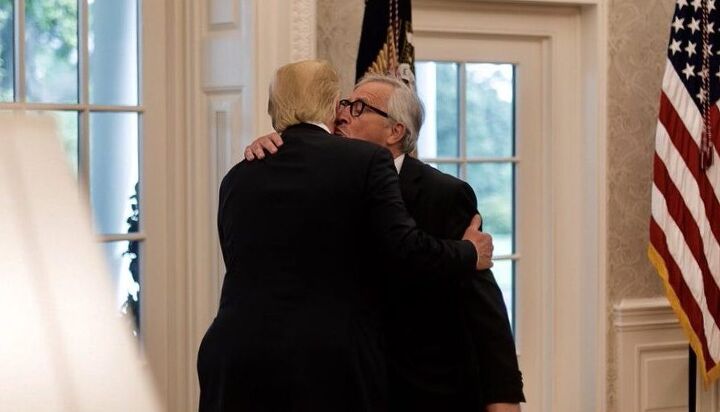




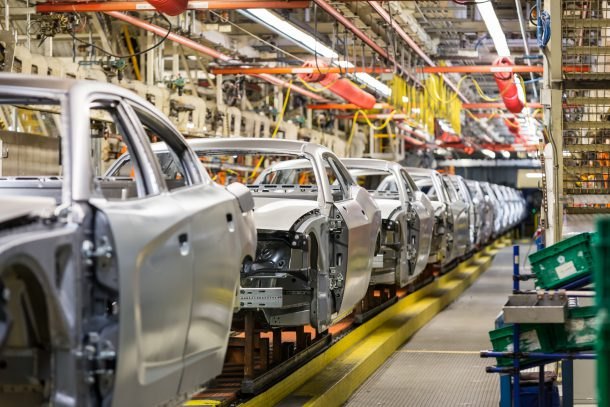
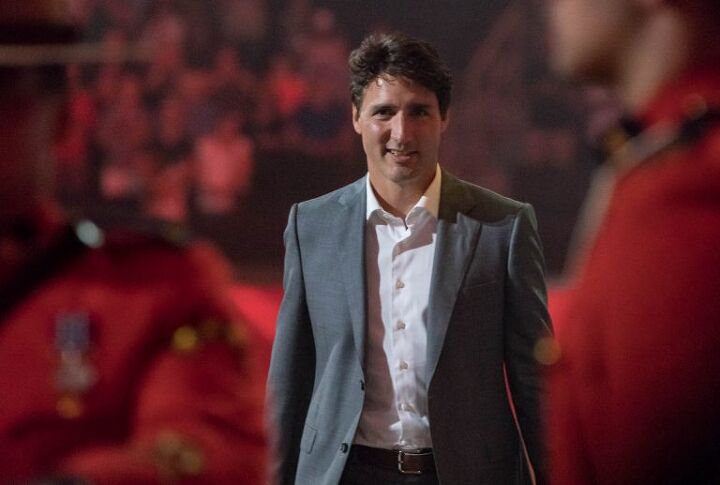


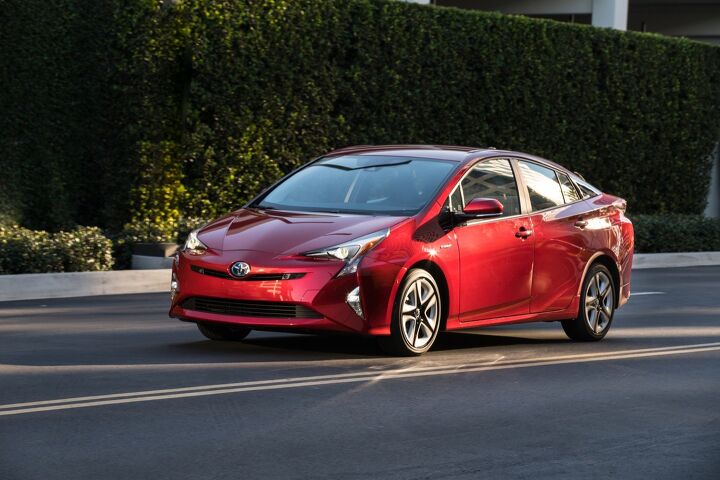
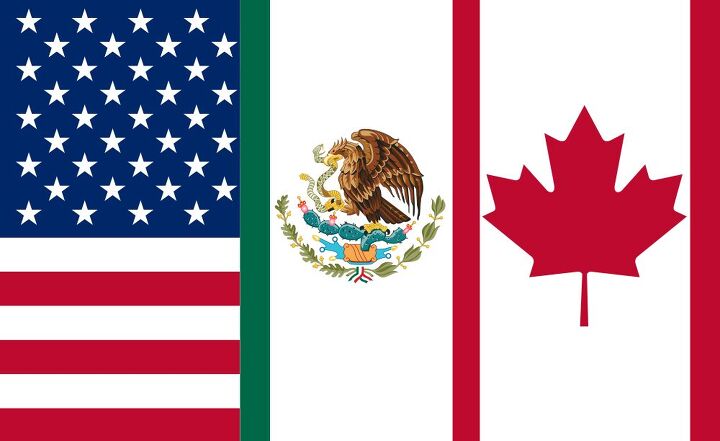
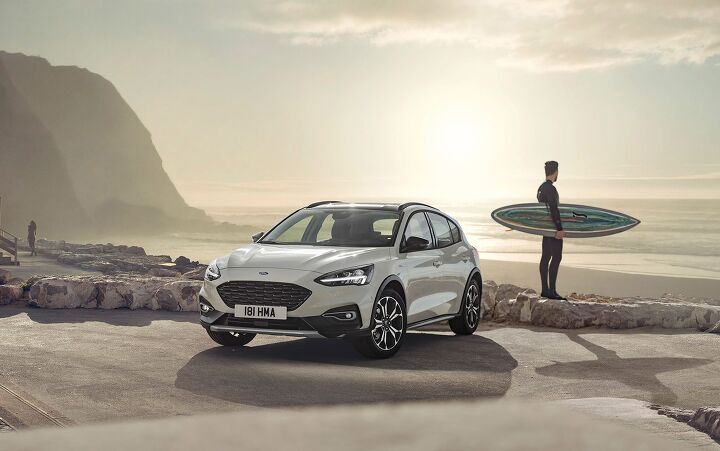













Recent Comments